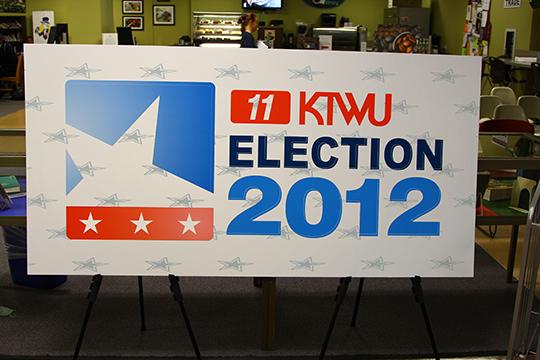Election season: It’s ugly, but important
October 24, 2012
Folks, we are in the midst of an election year.
It may prove to be a pivotal time in our nation’s history, due to the challenges we face domestically and in relation to the outside world.
Since the beginning of what is now being described as “The Great Recession,” in mid-2007, the nation has lost about 8.7 million jobs, according to data provided by the Department of Labor Statistics. The United States’ economic recovery has been slow.
We are constantly bombarded by information from the media, pundits, experts, ads, and politicians, and the facts get lost in translation. So where do our two candidates, Democratic incumbent President Barack Obama and his Republican challenger Mitt Romney, stand on economic issues, and how do they intend to make our lives better?
In every election year, we hear a lot about taxes. This is essentially money we pay to the government to keep it going. The government collects this money through income taxes, payroll, corporate taxes, and customs and duties – and the resulting money is called revenue. About 47 percent of government revenues in 2011 came from income tax, making it the largest source of revenue according to the Congressional Budget Office.
Each year, the government uses these revenues to pay out to various programs, the largest being Social Security (estimated by the CBO to be about a fifth of the entire budget this year) which are called outlays. The two candidates have sharply different views on how to increase revenues, lower outlays and keep the government afloat.
Obama’s economic plan focuses more on government assistance to aid in the nation’s recovery. He favors keeping certain tax credits (temporary reductions in taxes for certain groups) in place that favor primarily middle-class and lower-income brackets. Two examples are extending the earned income tax credit which lowers taxes for families with children and the “Hope Tax Credit” which targets college students paying for school and student loans, according to the Tax Policy Center.
He plans to pay for these by closing tax exemptions for people making $200,000 or more per year. The Obama plan also tackles the issue of multinational corporations’ tax rate, which under the current system allows companies who do business in the United States and overseas to choose when to pay their taxes to the government. Sen. Ron Wyden (D-OR) and Sen. Dan Coats (R-IN) have a similar plan on the table. Kimberly Clausing, professor of economics at Reed College, recently published a paper outlining the effects of this plan.
“The Obama Administration is proposing a minimum tax on foreign income earned in tax haven countries, said Clausing. “Both of these proposals couple tighter international tax rules with a lower corporate tax rate in order to encourage economic investment and jobs in the United States.”
Essentially, it centers around spending more government money now with the hope that it will help enough of the nation to get through the economic struggle to pay off later.
Challenger Romney’s economic plan tackles the issue differently. It centers more heavily on cutting taxes in the private sector to encourage growth. His plan would extend the 2001 and 2003 “Bush” tax cuts, which will otherwise expire in 2013 (Obama plans to extend some of these cuts, but allow some to expire.)
His plan also includes a 20 percent cut to the income tax. In order to spur business growth, the plan would eliminate the capital gains tax (tax on money made from stocks, bonds, and property) and lower the top tax rate (married or single earners making over $380,000 per year) from 35 percent to 28 percent.
According to the Tax Policy Center, the Romney plan would allow the aforementioned Hope Tax Credit and earned income tax credit to expire, to pay for the lost revenue from cutting other taxes.
Although figures from the Tax Policy Center show Romney’s plan may not add up in terms of realistic budget math, Moody’s chief economist Mark Zandi, in an interview with CNN, acknowledged the importance of cleaning up the tax code.
“I think it is important that we do focus on the so-called tax expenditures in the tax code. Those are the deductions, and credits, and loopholes in the code. We need to reduce those, because if we do we’re going to make the tax system fairer, easier to understand and ultimately lead to stronger growth,” Zandi said.
Romney’s plan is a supply-side approach, which says, more or less, that if you cut taxes for businesses, they can invest and hire more people, which lowers the unemployment rate. Theoretically then, the government can balance the budget because with more employed people, the government takes in more tax money while keeping rates lower.
The final pieces to the economic puzzle are entitlement programs, another term we hear during every election year. The term basically means any program that the government runs which gives people money. The largest one of these is Social Security, which is a system everyone pays into throughout their lives in order to receive payments at age 65. It currently pays money out to about 54 million Americans. By current estimates, the trust fund that pays this money out will run out of money by 2033.
Romney’s plan for the program is still vague, but he has stated in interviews that increasing the age of eligibility by two to three years will help keep the system running. He has also not ruled out the possibility of privatizing Social Security, which would take the burden for paying for the program off the federal government and allow it to be paid for by the private sector (various companies, etc.).



